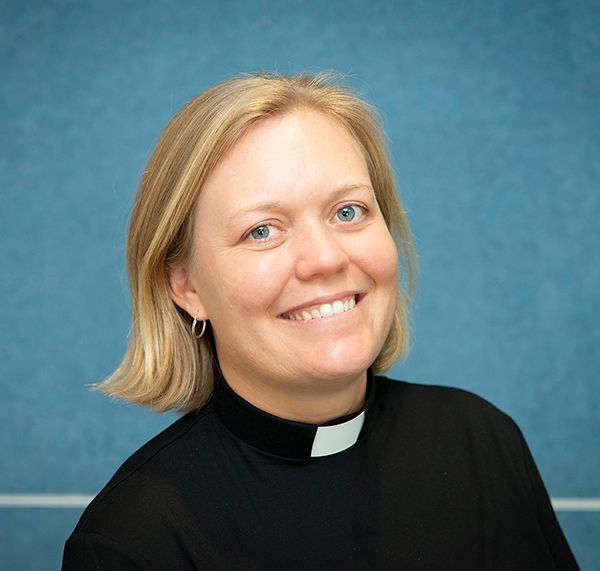Cannot Buy My Soul

By Rev. Dr Katherine Rainger, Senior Chaplain
Jesus woke one morning, rode a donkey up through the gate
He could see quite clearly he was going to face his fate
And the powers that be, could see that he, could not be bought or sold
They took his life and liberty friend but they could not buy his soul
- Cannot Buy My Soul by Kev Carmody.
After Jesus had said this, he went on ahead, going up to Jerusalem
- Luke 19:28.
In the song Cannot Buy My Soul, Aboriginal singer/songwriter Dr Kev Carmody places the Gospel's accounts of Jesus entering Jerusalem on a donkey (Luke 19: 28-40) alongside the experiences of First Nations peoples, activists Joe Hill, Che Guevara and Pemulwuy, and prophets who call out society’s greed.
This framing of Jesus’ life as a revolutionary killed by systemic injustice was brought home to me when I was on the Via Dolorosa, the path in the Old City of East Jerusalem where Jesus’ procession to the cross is commemorated. I remember standing with people from many different countries in the room in which Jesus is said to have been condemned to death. The guide invited us to pray the Lord’s Prayer in unison, but in our own language, and to remember political prisoners and those falsely imprisoned. It was a profound moment.
As Carmody narrates in Cannot Buy My Soul (sung here by the late, great Archie Roach), Jesus’ entry into Jerusalem on the day we call Palm Sunday was Jesus’ commitment to continuing his ministry of teaching about God’s Kingdom and calling those with power to account regardless of the cost.
Right across these lands now called Australia, Palm Sunday has become a rallying call for people to gather to highlight the plight of refugees and people seeking asylum. This year the Refugee Action Campaign in Canberra is inviting people to gather in Garema Place at 1 pm on Palm Sunday (Sunday, 2 April). I have been invited to speak alongside Senator David Pocock, Iranian refugee and entrepreneur Zahra Hashemi Barat, and folk singer David Rovics.
Last Friday, Year 12 students Thuhi Mathu-Ragupathy and Terry Yang hosted a screening of the film Scattered People. This 60-minute documentary tells the story of two Iranian musicians, Mas and Saha, who sought asylum in Australia. The film is a poignant reminder of the power of music to unite people. Scattered People (rated M) is available on Ten Play and Paramount and is well worth watching. Many prominent Australian musicians such as Missy Higgins, Katie Noonan, John Butler and Dan Sultan feature. Thuhi and Terry interviewed Emeritus Professor John Minns about the history and politics raised in the film. Professor Minns also gave a very compelling address at the 2022 Dirrum Dirrum Festival on how Australia’s treatment of people seeking asylum has changed over the decades. It can be viewed here.

The point that people everywhere are seeking the same thing comes through in Scattered People. Peace and security, a place to belong, and the freedom to express themselves. May our prayer inspire action as we lend our time, talents and voices to working for peace, justice and belonging for all people regardless of the circumstances that have impacted their lives.

The poet Rev. Sarah Speed has written a poem titled Where Are You Headed? that captures this sense of universal longing and individual agency as we journey towards and beyond the cross this Lent and Easter.
Where are you headed?
We are trains on a track,
moving through life at warp speed.
Please keep all arms and legs
inside the moving vehicle
at all times.
The years pass like a flipbook,
faster than we can absorb,
but the train does not stop.
We press our faces to the windows
to try and get a good view
and we ask each other,
Where are you headed?
And there on the train
we decide—
we want to head toward
the promised day.
We want to head toward crowded tables
and long, healthy lives.
We want to move in the direction of joyful children,
and hopeful communities.
We want to move closer to God
with every mile of track,
and that does not happen by accident.
So it’s time to ask,
Where are you headed,
and who’s driving that train?
